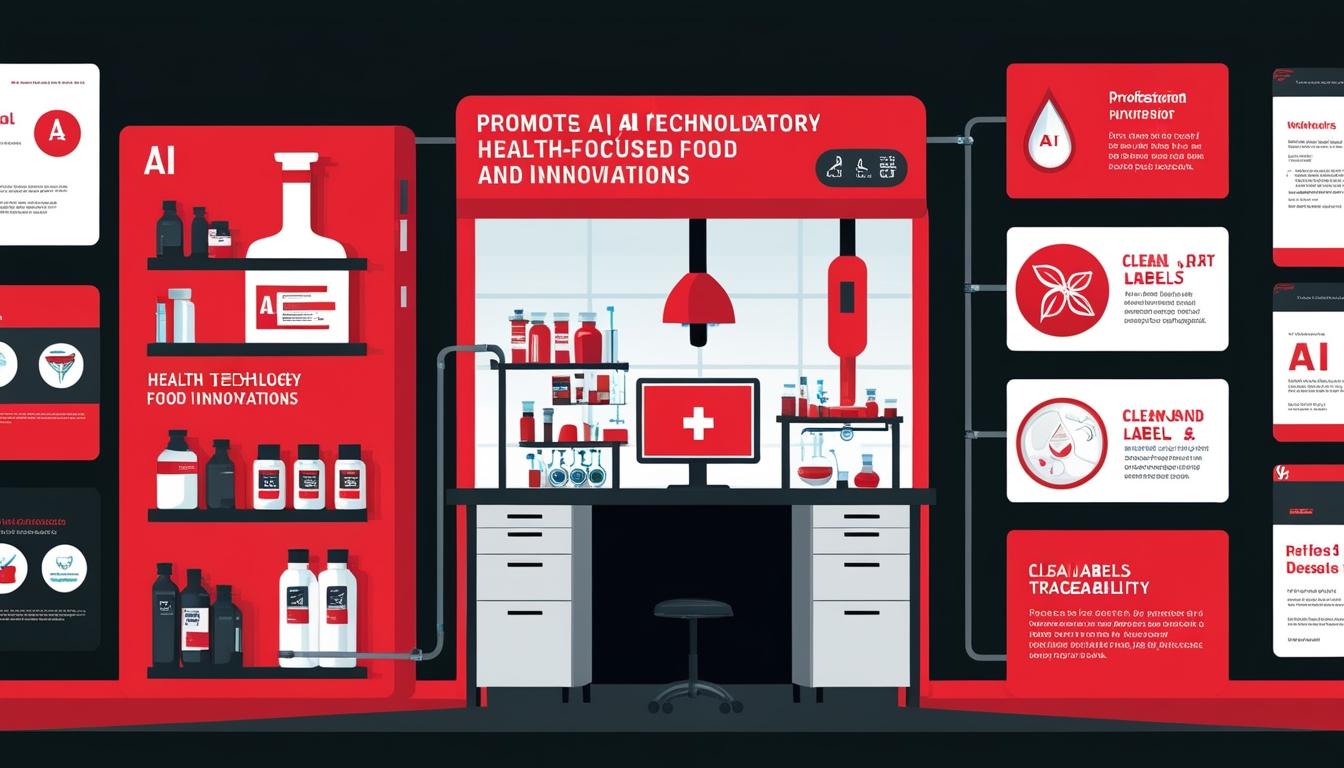In the fast-evolving landscape of the food and beverage industry, significant trends are emerging as 2025 approaches, largely driven by advancements in technology and shifting consumer preferences. Experts from the Institute of Food Technologists (IFT) have forecasted ten pivotal trends that are anticipated to shape the sector in the coming year, underscoring the growing influence of digital technologies, including artificial intelligence (AI), as well as ongoing demands for transparency and health-centric products.
A primary focus is the anticipated impact of GLP-1 medications, which are a type of weight loss drug. The global market for these medications is projected to grow at a compound annual growth rate of 29.6 percent through 2030, prompting food companies to innovate their product lines. The trend indicates a shift towards creating premium products that cater specifically to the needs of GLP-1 users by emphasizing protein and gut health.
Concurrently, issues surrounding salt and sugar reduction are set to dominate discussions throughout the industry. Recent policies, including front-of-pack labelling and government commitments, are expected to accelerate the formulation of products with lower levels of these additives. A pivotal moment will occur with the release of the Dietary Guidelines for Americans 2025-2030 at the end of 2025, which is expected to include new recommendations on salt and sugar consumption.
The trend of "Food is Medicine" continues to gain traction as consumers increasingly seek to use food for health benefits. This initiative, which has backing from government bodies such as the Department of Health and Human Services, is aimed at reducing chronic diseases through improved nutritional practices. IFT representatives, including Anna Rosales, have actively engaged in events like the Food is Medicine Summit, illustrating the growing acceptance of this approach among diverse demographics.
Consumer demand for clean labels remains a strong trend, with individuals prioritising products that feature familiar and comprehensible ingredients. This preference aligns with a broader scrutiny of ultra-processed foods, spurred by health-conscious consumers seeking to understand the origins of their food.
In the context of food safety, the approval processes for chemical additives are under increasing scrutiny, particularly after the passage of the Californian Food Safety Act, which banned several food additives. The legislative landscape indicates a growing drive towards eliminating certain ingredients and enhancing FDA post-market reviews of chemicals in food products, with IFT actively participating in discussions around these critical reforms.
Traceability in the food supply chain is becoming increasingly important, particularly in light of several high-profile recalls, which have highlighted the urgent need for tech-enabled tracking solutions. Food companies in the U.S. face an impending deadline to comply with new traceability regulations under the FDA’s Food Safety Modernization Act. Resources from IFT’s Global Food Traceability Center are designed to support companies as they navigate these significant compliance efforts.
Moreover, the FDA’s Closer to Zero initiative aims to minimise dietary exposure to harmful contaminants, particularly heavy metals like arsenic and lead. Ongoing public concern surrounding these issues, coupled with a significant rise in consumer awareness following high-profile cases of food contamination, suggests that this initiative will have a lasting impact on regulatory practices and food safety standards.
AI is expected to play an instrumental role in both food production and culinary practices. The integration of AI technologies in food laboratories will facilitate more efficient product development and deeper consumer insights, while in kitchens, both amateur cooks and professional chefs will utilise AI for recipe creation and ingredient substitutions. This trend towards AI in quality control is anticipated to enhance consistency in restaurant meals.
Lastly, following a period of sluggish investment, the agri/food tech sector is poised for revitalisation. Despite a notable decline in venture capital investments in early 2024, signals indicate a renewed interest in funding innovation within the food technology space, simplifying access for startups and encouraging future growth.
Overall, the landscape of the food and beverage industry as it heads into 2025 is characterised by a concerted focus on health, safety, and technological advancement, with stakeholders eager to adapt to these dynamic trends.
Source: Noah Wire Services
